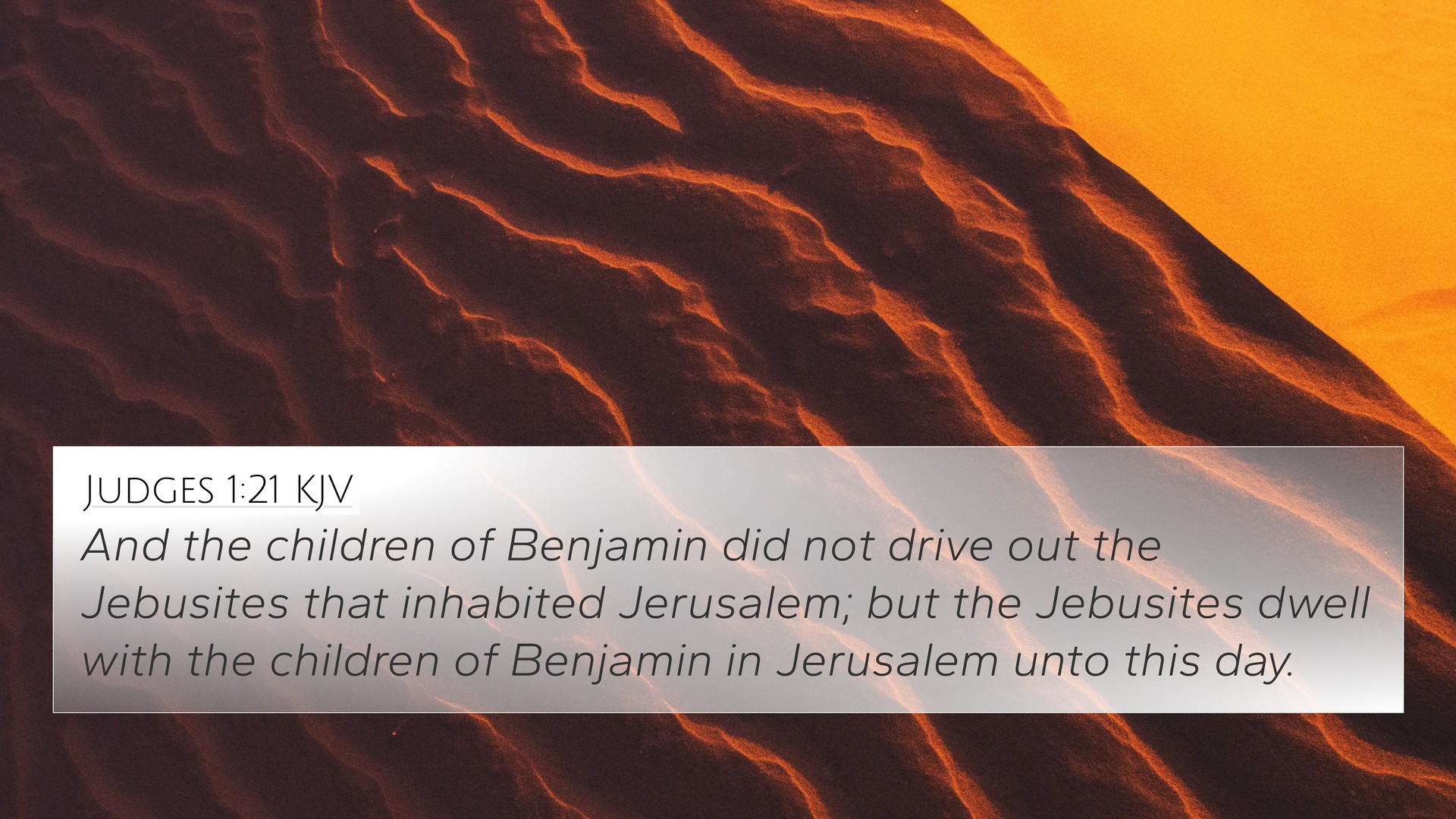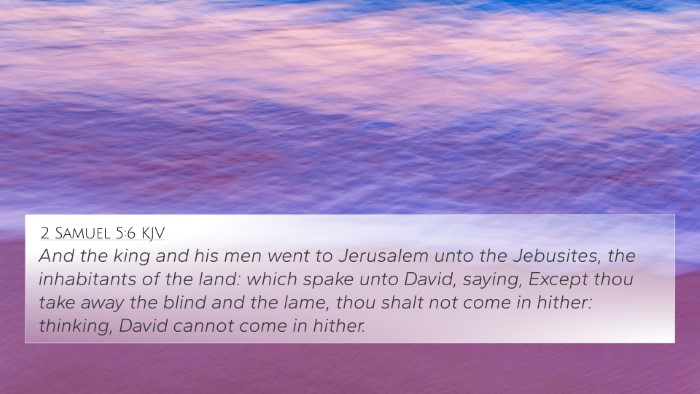Understanding Judges 1:21
Judges 1:21 states: "But the Benjamites did not drive out the Jebusites who lived in Jerusalem; so to this day Jerusalem is inhabited by the Jebusites." This verse marks a significant moment in the history of Israel, emphasizing both the failures and implications of the Israelites in fulfilling their divinely appointed tasks.
Contextual Analysis
The Book of Judges reflects the period between Joshua's conquest and the establishment of monarchy in Israel. Each tribe was responsible for conquering the territories assigned to them, but Judges chronicles the disobedience of Israel, including the failure of the tribe of Benjamin regarding the Jebusites.
Commentary Insights
Insights gleaned from various public domain commentaries shed light on the nuances of this verse:
-
Matthew Henry: Henry notes that the Benjamites' failure to drive out the Jebusites symbolizes a broader spiritual failure among the tribes of Israel. Their lack of obedience highlights a crucial theme in Judges: the consequences of disobedience to God’s commands.
-
Albert Barnes: Barnes elaborates on the implications of the Jebusites' continued presence, pointing out that they represent sin and compromise within the believer’s life. It cautions that allowing sin to coexist can lead to greater problems down the line.
-
Adam Clarke: Clarke emphasizes the geographical significance of Jerusalem as a key city. His commentary brings to attention that the name "Jebusites" reminds future generations of Israel's responsibility to uphold God’s commandments and the ensuing repercussions when they failed to do so.
Thematic Connections
This verse connects with numerous biblical themes and scriptures, making it a rich ground for further exploration:
-
Disobedience: Israel's failure is echoed throughout the Bible, particularly in Joshua 15:63, which indicates that the tribe of Judah also did not drive out the Jebusites.
-
God's Promises: The continuity of the Jebusites in Jerusalem correlates with God's promise to drive out the nations (Exodus 34:24), which requires faithfulness from Israel.
-
Spiritual Compromise: The presence of the Jebusites serves as an allegory for spiritual compromise found in Revelation 2:14, warning against mingling with corrupt practices.
Cross-References
This verse can be cross-referenced with the following scriptures to enhance understanding:
- Joshua 15:63 - Discusses the similar failure of the tribe of Judah.
- 2 Samuel 5:6-9 - Chronicles David's conquest of Jerusalem, signifying the importance of the city.
- Judges 2:1-3 - God’s admonition regarding Israel’s disobedience and its consequences.
- Zechariah 9:7 - References to the heritage of the Jebusites in biblical prophecy.
- Romans 11:22 - Discusses the consequences of failing to be faithful in covenant relationships, similar to Israel's failure.
- 2 Corinthians 6:14-17 - Encourages believers to separate from unclean things, echoing the call to drive out the Jebusites.
- 1 John 5:4 - Notes that faith is the victory that overcomes the world, which pertains to the challenges faced by Israel.
Conclusion
Judges 1:21 provides a profound insight into Israel's struggle with obedience and the challenges that arise from spiritual compromise. By understanding the connections between this verse and other Biblical texts, one can see the ongoing themes of faithfulness, responsibility, and the implications of neglecting divine commands. This connection to the overarching narrative of the Bible emphasizes the importance of adhering to God's directions for a fruitful spiritual life.
Further Exploration
For those interested in delving deeper, engaging with tools for Bible cross-referencing such as a Bible concordance or cross-reference Bible study guides can illuminate more connections. Understanding how different verses interact expands one's comprehension of scriptural teachings.







